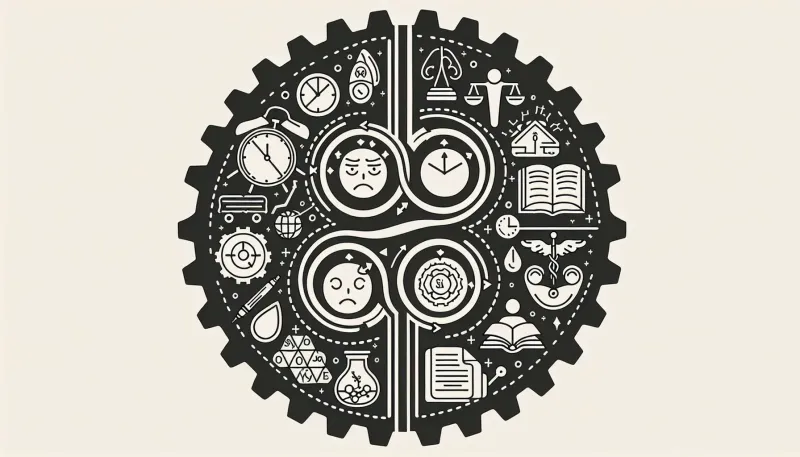How Hormonal Balance and Stress Are Interconnected: Tips to Regain Control

Discover how hormonal balance and stress are interconnected and learn practical tips to bring your hormones back into balance. Read on for expert advice and solutions.
In today's fast-paced world, maintaining hormonal balance can be challenging. Stress, a common experience for many, plays a significant role in disrupting hormones. This article delves into the intricate relationship between hormonal balance and stress, offering practical tips to regain control and achieve a healthier state of being.
Understanding Hormonal Balance
Hormonal balance involves the proper functioning of different hormones in the body, which are crucial for various physiological processes. Key hormones include cortisol, insulin, thyroid hormones, and sex hormones like estrogen and testosterone. Maintaining a balance among these hormones is vital for health and well-being.
The Impact of Stress on Hormonal Balance
Stress triggers the release of cortisol, commonly known as the "stress hormone." While this response is essential for survival, chronic stress can lead to elevated cortisol levels, disrupting overall hormonal balance.
Cortisol: The Double-Edged Sword
Cortisol helps regulate metabolism, immune response, and stress responses. However, prolonged high levels can negatively impact other hormones, disrupting processes such as blood sugar regulation and reproductive functions.
Adrenal Fatigue
Chronic stress can lead to adrenal fatigue, a state where the adrenal glands fail to produce adequate cortisol levels. This condition can cause fatigue, body aches, and other symptoms, further compromising hormonal balance.
Symptoms of Hormonal Imbalance Caused by Stress
Recognizing the symptoms of hormonal imbalance can help in addressing the root causes. Common symptoms include:
- Fatigue and low energy levels
- Weight gain or difficulty losing weight
- Sleep disturbances
- Changes in appetite
- Mood swings and irritability
- Irregular menstrual cycles and fertility issues
Practical Tips to Regain Hormonal Balance
Adopting lifestyle changes and self-care practices can help restore hormonal balance and manage stress effectively. Here are some evidence-based strategies:
1. Prioritize a Balanced Diet
A nutritious diet rich in whole foods, healthy fats, and protein can support hormone production and balance.
- Include plenty of vegetables, fruits, and lean proteins.
- Incorporate omega-3 fatty acids found in fish, flaxseeds, and walnuts.
- Avoid processed foods and excessive sugar intake.
2. Exercise Regularly
Engaging in regular physical activity helps reduce cortisol levels and enhances overall well-being.
- Aim for at least 30 minutes of moderate exercise most days of the week.
- Incorporate a mix of cardio, strength training, and flexibility exercises.
3. Manage Stress Effectively
Practicing stress-reduction techniques can significantly impact hormonal balance.
- Try mindfulness meditation and deep-breathing exercises.
- Engage in hobbies and activities you enjoy.
- Maintain social connections and seek support when needed.
4. Get Adequate Sleep
Quality sleep is essential for hormonal health. Aim for 7-9 hours of uninterrupted sleep each night.
- Establish a regular sleep routine.
- Create a comfortable sleeping environment free from disturbances.
5. Consider Professional Help
If lifestyle changes aren’t enough, seeking professional help can be beneficial. Consult with healthcare providers for:
- Hormone level testing
- Nutrition and lifestyle guidance
- Targeted therapies or supplementation
Conclusion
Understanding the connection between hormonal balance and stress is crucial for maintaining overall health. By recognizing the impact of stress on your hormones and implementing practical strategies to manage it, you can achieve a balanced and healthier life. Remember, small changes in your daily routine can make a significant difference in your well-being.



























